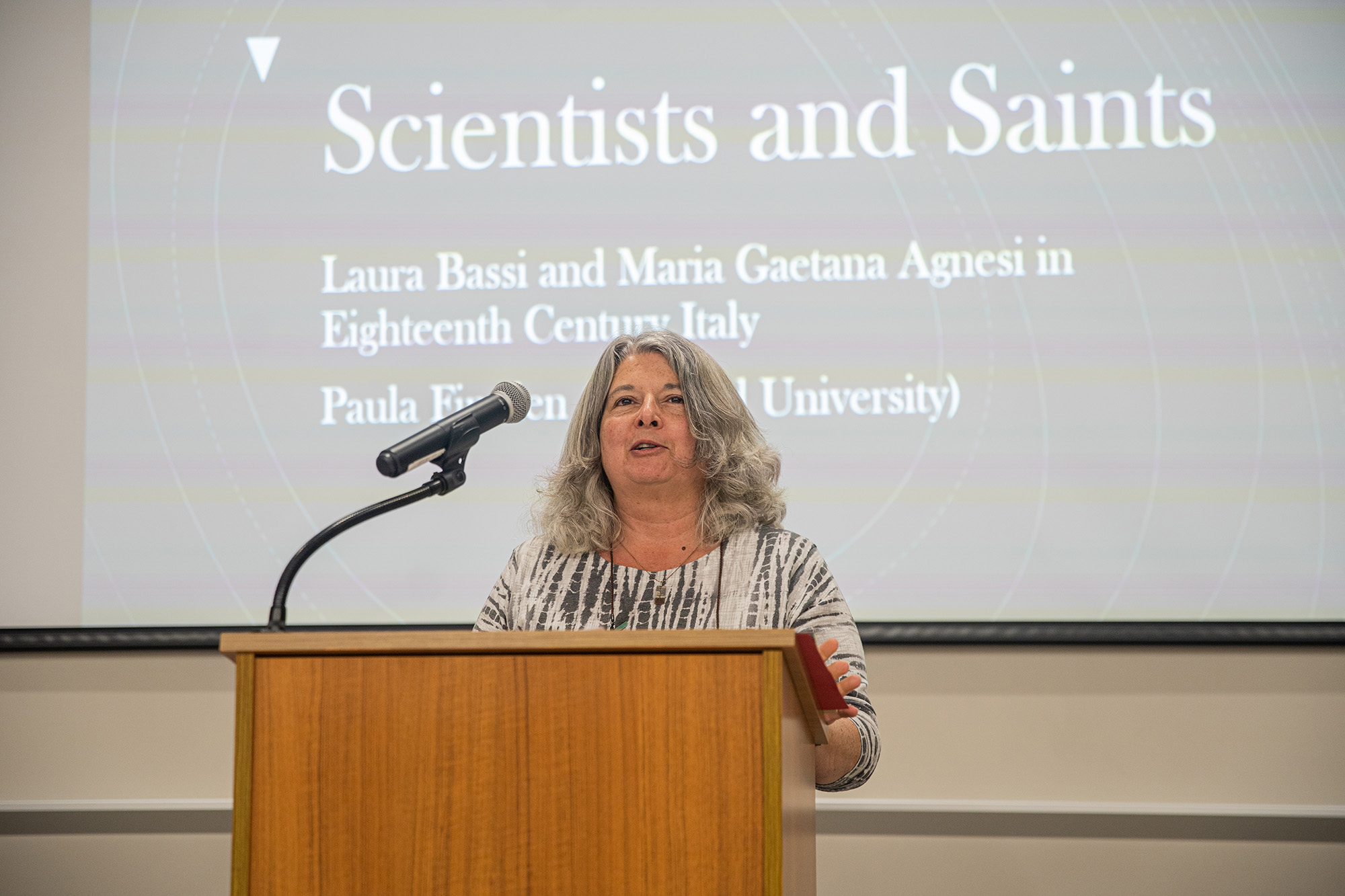 The Thomas A. Perry Faith and Science Lecture was held on campus at Central Methodist University on Thursday for the first time since 2019, as Central welcomed Dr. Paula Findlen to speak.
The Thomas A. Perry Faith and Science Lecture was held on campus at Central Methodist University on Thursday for the first time since 2019, as Central welcomed Dr. Paula Findlen to speak.
Findlen, who was originally scheduled to give the lecture in 2020, finally got the chance to present her talk on “Scientists and Saints: Laura Bassi and Maria Gaetana Agnesi in Eighteenth-Century Italy” in front of a crowd in the Inman Lecture Hall.
“We’ve been planning this for almost three years now, thanks to COVID,” she said as she was introduced. “It’s still, for some of us, a novelty to go somewhere you haven’t been and actually give a live talk to a live audience.”
Findlen spoke for around an hour on Bassi and Agnesi, “two of the most prominent and celebrated women of science in the 18th century,” as she called them.
“They are complementary examples of what it meant to pursue faith with science and science with faith,” explained Findlen.
Both women were born in Italy in a time when the trial of Galileo in the previous century – for believing that the Earth revolves around the sun – was sparking efforts to reconcile some of the differences between science and religion in Catholic Italy. This relationship between faith and science was key to both women’s lives, though in meaningfully different ways, according to Findlen.
Bassi, a member of a middle-class family from Bologna, worked to educate herself and became the first woman in the city to earn a degree and a professorship. She gave her first lecture in public in 1732 in front of many male scholars and clerics, who surely had in mind the Biblical passages that forbid such a thing.
“But I think Bassi, and many of the clerics there, also knew the passage from Galatians [3:28]: ‘There is no longer. . .male nor female, for all of you are one in Christ Jesus,’” Findlen posited. “Thus, she became a woman to teach physics and philosophy to men in this university, with full support of church leadership, and did that for the rest of her life.”
Agnesi, on the other hand, was the oldest daughter of a wealthy man in Milan who encouraged her to debate on scientific subjects at his parties. She would eventually be offered a professorship by the same patron who encouraged Bassi – the man who eventually became Pope Benedict XIV – but she turned it down and, after her father’s death, focused on promoting the “urban mission of faith” through charity, education, and social work.
“That was her answer for what she ultimately thought it meant to be useful,” said Findlen, “to use her knowledge and her learning, but also to use her faith.”
Both women were ultimately remembered for their scientific contributions and their faithful charity, subjects that were never really in opposition to each other for either of them.
Findlen, who wrapped up her talk by taking questions for about half an hour, is a professor of Early Modern Europe and History of Science in the Stanford University History Department. Her research and teaching focuses on the early history of science and medicine, including the relationship between knowledge and faith in Galileo’s world and the history of early modern women pursuing science.
Dr. Thomas Perry, the namesake of the lecture series, spent 20 year as chairman of the English department at Central. He was also the chair of the Division of Literature and Languages and chair of the honors program. He sponsored Scribblers and Scrawlers, a club for aspiring creative writers, hosting and entertaining them monthly at his home. Perry is the late father of Tad Perry, former chairman of the Board of Trustees at CMU.
To view Findlen’s full lecture, visit https://vimeo.com/697426717.